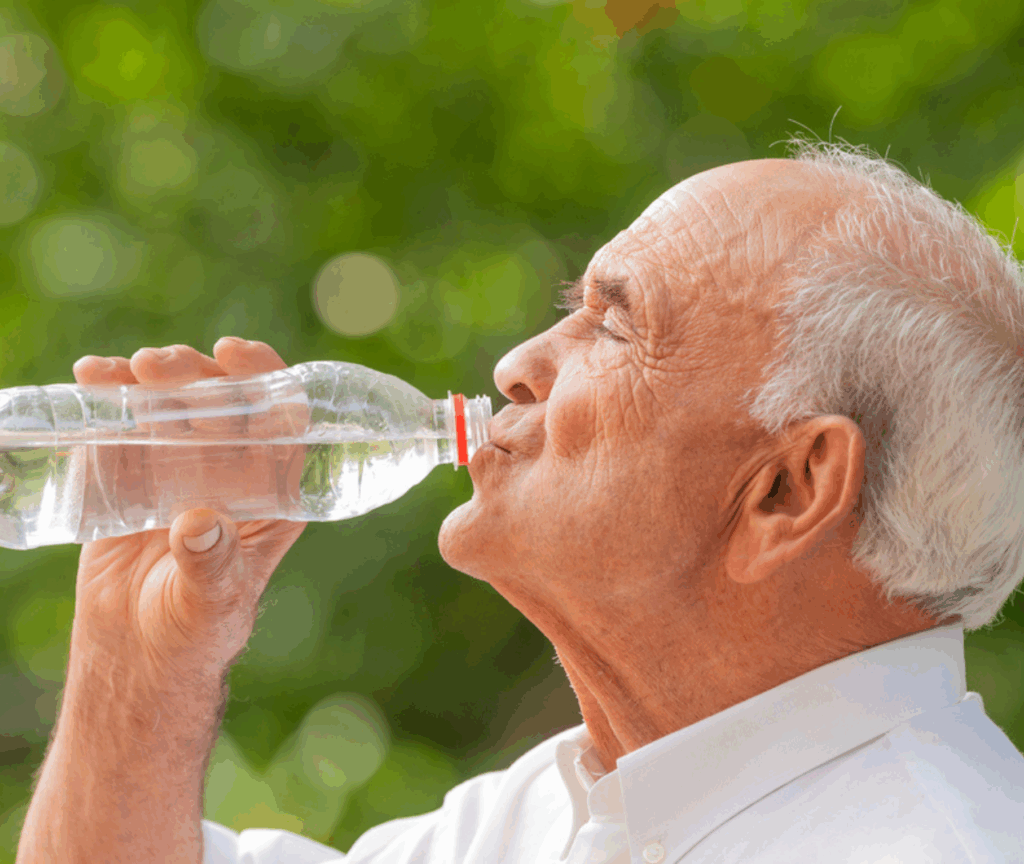Water is a cornerstone of good health at every stage of life, and it becomes even more essential as we age. For older adults, staying properly hydrated supports physical wellness, mental clarity, and overall quality of life. World Water Week is a timely reminder to celebrate the life-sustaining power of water and to encourage seniors to make hydration a daily priority.
Why Hydration Matters More in Senior Years
As people grow older, the body’s ability to conserve water decreases, and the sense of thirst may become less acute. This means that older adults might not always feel thirsty, even when their bodies need fluids. In addition, some medications, medical conditions, and lifestyle habits can contribute to dehydration without clear signs.
Proper hydration plays a vital role in regulating body temperature, maintaining joint and muscle function, aiding digestion, and supporting kidney health. It also promotes healthy skin and helps prevent fatigue, dizziness, and confusion—issues that can impact safety and day-to-day independence.
The Benefits of Drinking Enough Water
Maintaining hydration brings a range of physical and mental health benefits that help seniors live more comfortably and energetically:
- Supports cognitive function – Staying hydrated enhances alertness, concentration, and memory.
- Promotes heart and kidney health – Water helps flush toxins from the body and supports proper circulation and blood pressure regulation.
- Improves digestion – Water aids in the smooth function of the digestive system and can help prevent constipation.
- Protects joints and muscles – Adequate hydration helps lubricate joints and muscles, reducing stiffness and discomfort.
- Prevents falls and fatigue – Dehydration can lead to weakness and light-headedness. Drinking enough fluids supports steadiness and reduces fall risk.
Signs of Dehydration to Watch For
While prevention is key, it’s also helpful to recognize common signs of dehydration in older adults. These may include:
- Dry mouth or lips
- Headaches
- Dark-colored urine
- Confusion or irritability
- Dizziness, especially when standing
- Fatigue or weakness
Early recognition and prompt fluid intake can quickly restore balance and comfort.
Easy Ways for Seniors to Stay Hydrated
Encouraging hydration doesn’t mean drinking plain water alone. There are many enjoyable and practical ways for older adults to meet their fluid needs:
1. Drink Water Regularly Throughout the Day
Sipping water at regular intervals is more effective than drinking large amounts all at once. Keeping a water bottle nearby makes it easier to remember and stay consistent.
2. Add Flavor to Water
For those who prefer a bit of taste, adding slices of cucumber, lemon, berries, or mint can make water more appealing. These natural infusions are refreshing and free of added sugars.
3. Eat Hydrating Foods
Many fruits and vegetables have high water content and contribute to daily hydration. Watermelon, oranges, cucumbers, strawberries, lettuce, and tomatoes are all great choices.
4. Include Other Fluids
Milk, herbal teas, broths, and diluted fruit juices can be part of a healthy hydration routine. Just be mindful of added sugars or caffeine, which may have dehydrating effects in larger quantities.
5. Create a Hydration Routine
Pairing water intake with regular activities—like meals, medication times, or morning and evening routines—helps build strong habits.
Tailoring Hydration to Individual Needs
Every senior has unique hydration needs based on their health, medications, and activity levels. In some cases, doctors may recommend fluid adjustments to accommodate conditions like kidney disease or heart issues. Staying informed and checking in with healthcare providers ensures that hydration supports overall wellness.
For seniors with swallowing difficulties, thickened liquids or hydration support tools can provide safe and comfortable alternatives. Caregivers and family members can play an important role by offering fluids regularly and ensuring easy access to beverages.
Making Hydration Enjoyable and Easy
Creating a positive environment around hydration can make a big difference. Colorful water bottles, fun mugs, or marked pitchers with time reminders can turn water intake into an enjoyable part of the day. Social moments—such as sharing a pot of tea or enjoying fruit-infused water during a walk—add an extra layer of enjoyment and routine.
Staying Hydrated During Hot Weather and Activity
In warmer months or during physical activities, seniors need to be extra mindful of fluid loss through perspiration. Even light outdoor movement or gardening can increase hydration needs. Planning water breaks, wearing light clothing, and avoiding excessive sun exposure help prevent dehydration and overheating.
Conclusion
Water is one of the simplest and most powerful ways to support health, especially during the senior years. Celebrating World Water Week is a great opportunity to refresh our appreciation for hydration and to encourage older adults to make it a joyful, consistent part of daily living.
With mindful habits, delicious hydration options, and support from loved ones, seniors can enjoy the many benefits of staying well-hydrated—feeling energized, clear-headed, and ready to embrace each day with vitality.

